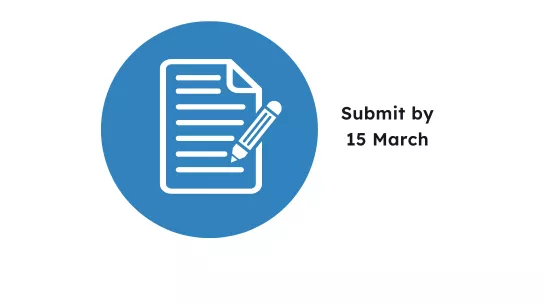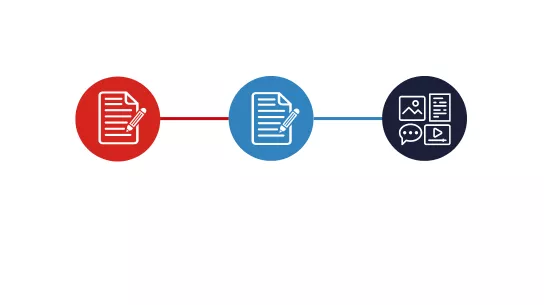The deadline for Snowdon Master’s Scholarship stage 2 applications has now passed. You can no longer submit a stage 2 application.
Listed below are the key sections of the stage 2 application. Click to expand each one for the questions you'll need to answer, helpful prompts and the word limit

Applicant details
This section will be auto populated with the information you provided when you registered on the portal. You’ll be able to edit your information here if you need to.
Education and/or employment experience
Please provide details of your recent education history and any relevant employment or voluntary roles. You can upload your CV (max 2 pages) or add the information manually using the tables provided in the application form.
When telling us about your recent education history, we are interested in your undergraduate degree or other recent, relevant studies or professional qualifications. We do not need to know about your GCSEs or A-level results unless you think they are particularly relevant to your application.
When telling us about your relevant employment and voluntary roles, we would like to know about your most recent roles which are related to your choice of study and career ambitions. You do not need to list every job or role you have ever had.
Achievements
Tell us about the relevant achievements that have brought you to this point.
There is a word limit of 400 words. The following prompts may be helpful when you answer the question.
We want to know what you have already achieved in your field of study. Things that you have worked hard at, that show your determination and are reasons to celebrate.
The following list is not exhaustive but gives you an idea of things you might tell us about if they are applicable to your field.
-
- academic achievements e.g., exceptional results, awards, papers, presentations
- artistic achievements e.g., exhibitions, performances, awards, tours
- application of study e.g., engagement in your subject area, relevant work experience and/or volunteering, talks, blogs, memberships
- dedication to your field e.g., personal development, non-traditional pathways, complementary activities, activities and involvement in events, volunteering, societies and groups
- role model or pioneer in your field e.g., patron to a society, ambassador for a cause, certificates of recognition, awards, presentations, exhibitions, titles
What qualities and skills do you have, or have acquired, that make you an exceptional leader, role model, or advocate?
There is a word limit of 400 words. The following prompts may be helpful when you answer the question.
What qualities do you have that can make you an exceptional leader, a role model, or a pioneer? How did you acquire these?
How can you use your qualities and skills to drive change?
Can you give us examples of how you have demonstrated these qualities and skills e.g. in roles of university responsibility, in the workplace, disability advocacy?
Potential
Given the ambition of this award to support future leaders and change-makers, what are your plans for the future?
There is a word limit of 600 words. The following prompts may be helpful when you answer the question.
We want to understand your ambition to make the world a better place.
How do you plan to drive change? You might plan to challenge status quo, lead or take part in campaigns, advocacy, volunteering, subject specific leadership, or mentoring. You might have plans to demonstrate excellence in a specific field, achieve prominence and/or inspire others.
Commitment
All Scholars are invited to join the Disabled Leaders Network (DLN) – a community of exceptional disabled students, graduates and change makers. What skills will you bring to it and what will you gain?
There is a word limit of 600 words. The following prompts may be helpful when you answer the question.
How could your skills, qualifications and experience bring benefit to the DLN specifically, and other individuals, groups, or society at large?
How do you think the Disabled Leaders Network can benefit you on your journey towards future leadership?
You can read more about the DLN below
Disabled Leaders NetworkReferee details
Please provide the name and contact details of a person who will provide an academic reference for you. If you have not studied within the past three years, you may provide a professional reference instead.
We will only contact your referee if your application is shortlisted.
Please ensure you have your referee’s permission to share their contact details with the Snowdon Trust and confirm that they will be available to write you a reference for submission by 31 May 2024.
An academic referee should be able to comment on your academic capacity to undertake postgraduate studies.
If you are providing a professional reference, the referee could be an employer, colleague, coach, mentor, or someone else who is able to comment on your professional skills, work ethic and strengths. They must not be a close friend or family member.


